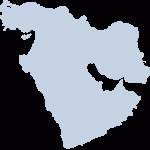Friday
May142010
Middle East Analysis: Russia's Strategy on Israel, Palestine and Beyond
 Friday, May 14, 2010 at 21:25
Friday, May 14, 2010 at 21:25  On Wednesday, during a visit to Ankara following meetings with Syrian President Bashar Al-Assad and Hamas Political Bureau Chief Khaled Meshal, Russian President Dmitry Medvedev reiterated Moscow's Middle East policy. Both Russia and Turkey stated that the International Community must deal with Hamas due to the party's support from the Palestinian people in the 2006 elections and called on Hamas and Fatah to unite.
On Wednesday, during a visit to Ankara following meetings with Syrian President Bashar Al-Assad and Hamas Political Bureau Chief Khaled Meshal, Russian President Dmitry Medvedev reiterated Moscow's Middle East policy. Both Russia and Turkey stated that the International Community must deal with Hamas due to the party's support from the Palestinian people in the 2006 elections and called on Hamas and Fatah to unite.In February, Meshaal had been welcomed in Moscow. So latest Medvedev’s meeting is another step forward helping Hamas build strategic relations in the international arena.
Turkey Inside Line: Ankara & Russia Press Israel on Hamas Issue
As for Moscow, the move is filling the space left by Washington. Unlike the US inability to approach the problems of the region by connecting them, Moscow is showing its willingness to treat Middle East actors in a complicated and inter-linked context. This includes Iran's nuclear technology, Israeli-Palestinian conflict, the challenge of Palestinian unity dilemma, and the triangle between Israel, Iran, and Syria.
Moscow is investing directly in Hezbollah through Syria and Iran, but now it is moving directly over Hamas. The Kremlin urged the Gaza leaders to release the Israeli soldier Gilad Shalit and to move towards reconciliation with Mahmoud Abbas’s Fatah within the framework of the Palestine Liberation Organization.
Finally, Moscow's latest gambit in Syria posed another challenge for Israeli officials. Medvedev said that the Middle East must be free of nuclear arms, otherwise the situation could lead to a regional or even global catastrophe.
Israeli decision-makers have tried to manipulate Russia's involvement in the region, asking it not to sell S-300 missiles to Iran in 2008 and to halt the sale of advanced MIG-31 fighter jets to Syria. West Jerusalem also sees a "finishing role" for Russia on sacntions against Iran, leaving China in isolation on the issue.
Russia, in response, agreed to the Israeli demands on military deliveries to Iran and Syria but is still holding its card on sanctions. The recent visit to Syria and the second round of its direct investment in Hamas are extra bargaining points.
Syria? As a country accused of transferring weapons to Hezbollah, recently re-sanctioned for another year by Washington, Damascus got a breather with Medvedev's visit and his proclamation of Syria as "one of the most important political centers of the Middle East. Two cooperation agreements in the fields of air services and information and communication technology, two agreements on technical, scientific, and environmental cooperation, and a joint work programme to implement cooperation on tourism cooperation were also signed. According to Stratfor, Russia also signed agreements to sell the Syrians MiG-29 fighters, Pantsir short-range surface-to-air missiles, anti-aircraft artillery systems, and anti-tank weapons.
After Israeli criticism in February, the Kremlin said that Foreign Minister Sergei Lavrov was the highest-level official Meshaal would meet. Its ambassador assured West Jerusalem that the Meshaal visit did not signal a swing in Moscow’s policy toward Hamas, and he said that Lavrov would reiterate that the Islamist movement must abide by conditions to recognize Israel, give up violence, and honour past peace accords.
This time, the Israeli Foreign Ministry slammed Medvedev's call to involve Hamas in the Mideast peace process and likened the organization to the Islamist Chechen rebels. In response, Andrei Nesterenko, the Russian foreign ministry spokesman, said in a statement:
Hamas is not an artificial structure. It is a movement that draws on the trust and sympathy of a large number of Palestinians. We have regular contacts with this movement.
It is known that all other participants of the Middle East quartet are also in some sort of contact with Hamas leadership, although for some unknown reason they are shy to publicly admit it.



